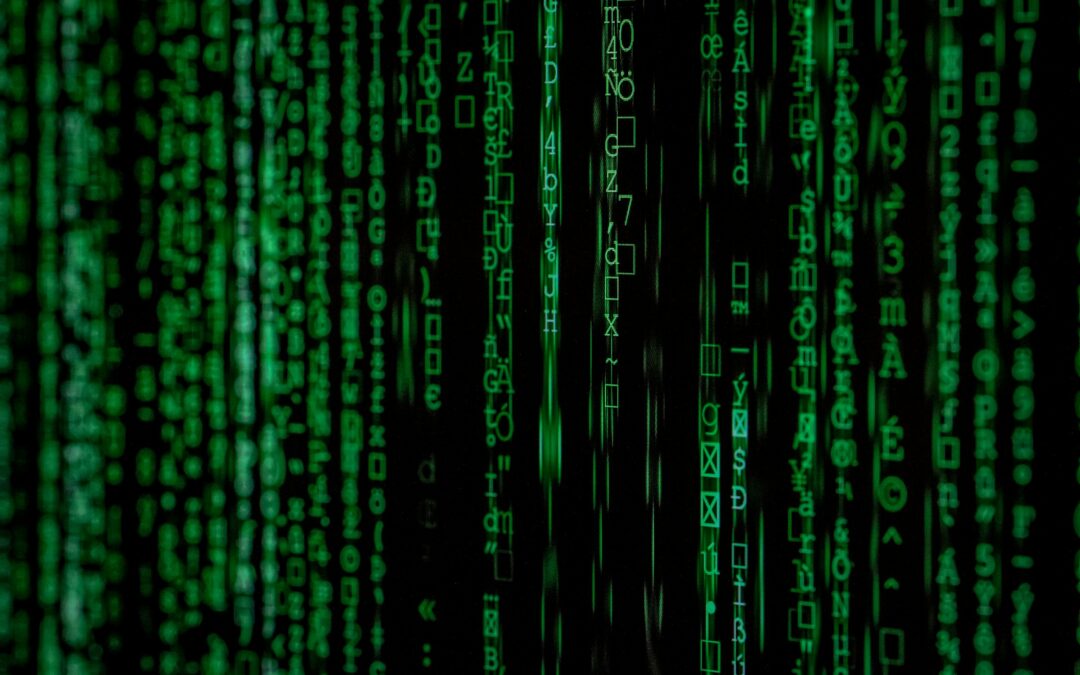In Dresden, a serious case of sexual harassment Cybercrime confidence in election security. A system administrator at the city's IT service provider is suspected of having copied the voting data of around 430,000 citizens without authorization. This incident highlights the importance of data protection in our digital world.
The alleged perpetrator is said to have transferred around 270,000 files to private storage media between May and October 2024. These included an election notification file containing sensitive personal data such as names, addresses and dates of birth. This data breach was discovered during a routine check.
This case shows how vulnerable our digital systems are. It is a wake-up call for all authorities to review and strengthen their security measures. The citizens of Dresden are now concerned about the protection of their personal data and trust in the electoral process.
Important findings
- An admin is suspected of stealing voting data from 430,000 citizens
- 270,000 files were copied to private storage media
- Sensitive data such as names and dates of birth were affected
- The incident was discovered during a routine check
- Confidence in election security and Privacy is shaken
- Authorities must urgently review security measures
Overview of the data theft incident
A serious incident occurred in Dresden in the area of the IT Security. A 54-year-old employee of the city administration copied unauthorized Secret data of over 430,000 citizens on private storage media. This data theft raises questions about the security of election data.
Course of the incident
The IT employee used his access to sensitive information to steal election data. This action initially went undetected and highlights weaknesses in the security system. The theft of election data poses a potential threat to the integrity of the democratic process.
Affected persons
Citizens of Dresden who are entitled to vote are affected by this data theft. Their personal data, which is used for election notifications, has been copied. This includes sensitive information such as names, addresses and possibly other personal data.
Meaning of election data
Election data is of crucial importance for the democratic process. They are used for the proper conduct of elections and must be protected against misuse. Unauthorized access could lead to Election manipulation and shake citizens' confidence in democratic institutions.
| Aspect | Impact |
|---|---|
| Data scope | Over 430,000 citizens affected |
| Type of data | Personal information for election notifications |
| Potential consequences | Possible Election manipulation, Loss of confidence |
The incident in Dresden shows the need for increased security measures when handling election data. It highlights the importance of robust IT security systems and strict access controls in order to protect the integrity of elections and maintain trust in democratic processes.
The role of the administrator in the voting system
The administrator plays a crucial role in the voting system. Their tasks and responsibilities are closely linked to the security and integrity of the election data. In times of increasing Hacking and political scandals, the role of the administrator is particularly important.
Tasks and responsibilities
An administrator in the voting system has a variety of tasks. They manage sensitive data and ensure its security. This includes monitoring the systems, performing backups and updating security protocols. The administrator must also recognize and ward off potential threats.
- Management of voter data
- Securing the electoral systems
- Monitoring data integrity
- Updating security protocols
Security requirements for administrators
Strict security requirements apply to administrators. They must observe the principles for online elections: Immediate, Free, Equal, Secret and Public. They must also be familiar with various attack models, such as cross-site scripting (XSS) or insecure deserialization.
| Attack type | Description | Protective measure |
|---|---|---|
| Cross Site Scripting (XSS) | Infiltration of malicious code | Input validation |
| Unsafe deserialization | Manipulation of objects | Safe deserialization methods |
| Brute force attacks | Systematic testing of passwords | Password policies and access blocking |
The incident in Dresden shows that even trustworthy employees can pose a security risk. It is therefore important that administrators receive regular training and that their actions are transparent in order to be seen as a potential Whistleblower to uncover grievances.
Methods of data theft
The Data theft in Dresden shows how important Cybersecurity in elections. The administrator used various methods to gain access to the sensitive election data. These procedures illustrate the need for strict security measures.
Technological approaches
The perpetrator resorted to advanced technical methods in order to GDPR-guidelines. He copied the data onto private storage media over a period of months. This indicates careful planning. Such incidents underline the importance of robust access controls in the electoral system.
Socio-technical manipulation
In addition to technical means, the administrator may also have used social engineering tricks. He could have manipulated colleagues in order to gain additional access rights. This tactic shows how important training is for recognizing manipulation attempts.
| Method | Description | Countermeasure |
|---|---|---|
| Data copy | Transfer to private storage | Encryption, access logging |
| Social engineering | Manipulation of employees | Sensitization training |
| Exploitation of privileges | Abuse of admin rights | Regular checks, dual control principle |
To prevent future incidents, authorities need to strengthen their cyber security measures. Regular security checks and strict access controls are essential. This is the only way to ensure trust in the integrity of election data.
The protection of election data is crucial for the Democracy. Every citizen must be able to trust that their vote is secure.
Consequences for the electoral society
The data theft in Dresden has far-reaching consequences for the electoral society. The Information Security is being put to the test, and citizens' trust in democratic processes is being put to the test.
Effects on voters
The DataBreach is shaking voters' confidence in the security of their personal data. A survey shows that many citizens are concerned about the possible use of their information for identity theft or targeted influence. This could lead to a drop in voter turnout.
Possible influence on elections
The stolen data could be used for Cybercrime-activities are misused. Experts warn of the danger of manipulation and disinformation in election campaigns. To counteract this, security experts are calling for stricter controls and regular checks of voting systems.
- 70% of respondents express concerns about the Data security in elections
- 25% consider not voting due to security concerns
- 85% call for stricter security measures for voting systems
The authorities are faced with the challenge of restoring trust in democratic processes while at the same time Information Security to improve. This is the only way to ensure the integrity of future elections.
Reactions of the authorities
After the data theft in Dresden, the authorities reacted quickly and decisively. The city administration took immediate measures to ensure the security of public services and prevent further incidents.
Immediate action by the city administration
The Dresden city council acted immediately:
- Blocking all access rights of the suspect
- Filing a complaint with the investigating authorities
- Carrying out a house search to seize private storage media
- Tightening of access protection and rules for mobile data carriers
Statements from safety authorities
The security authorities took the incident seriously and initiated extensive Investigations one. The police and public prosecutor's office are working closely together to investigate the case and identify possible weaknesses in the system.
A police spokesman emphasized: "We are using all available resources to strengthen cyber security in the public sector and prevent similar incidents in the future."
The authorities are using the incident as an opportunity to review and improve security measures throughout the public sector. Training for employees and stricter access control systems should ensure better protection of sensitive data in future.
Legal aspects of data theft
The theft of election data in Dresden raises important legal questions. The focus is on the criminal consequences for the perpetrator and the applicable data protection regulations in Germany.
Criminal consequences for the perpetrator
The Criminal law provides for Cybercrime like Data theft severe penalties. The case will probably be prosecuted under §202a StGB. An administrator who exceeds their authority is liable to prosecution. The maximum penalty is three years in prison or a fine.
Data protection regulations in Germany
The GDPR plays a central role in the protection of personal data. Serious breaches can result in high fines. The employer could also be held liable if security measures are neglected.
| Legal aspect | Possible consequences |
|---|---|
| Criminal law (§202a StGB) | Up to 3 years imprisonment or fine |
| GDPR-Violation | Fines of up to €20 million or 4% of annual turnover |
| Consequences under labor law | Termination, claims for damages |
The case shows the importance of robust security measures and training for employees with access to sensitive data. This is the only way to Cybercrime-prevent incidents like the one in Dresden in the future.

Measures to prevent future incidents
Following the incident in Dresden, the city administration is planning comprehensive improvements to the IT Security and in the Privacy. The aim of these measures is to Prevention of data theft and to restore citizens' trust in the electoral process.
Improvements in data security
The city administration relies on extended access controls and encryption of sensitive data. A new monitoring system is designed to detect suspicious activities at an early stage. In addition, the rules for mobile data carriers are being tightened to prevent unauthorized data transfer.
| Security measure | Goal |
|---|---|
| Extended access controls | Prevent unauthorized access |
| Data encryption | Protection of sensitive information |
| Improved monitoring system | Early detection of security incidents |
| Strict rules for mobile data carriers | Prevent data outflow |
Training for employees
Regular training courses for employees are a key element of the new strategy. These courses focus on IT Security and Privacy. The aim is to raise awareness of potential risks and enable employees to recognize threats and react correctly.
The city administration plans to implement these measures quickly in order to ensure the integrity of future elections. The combination of technical solutions and employee training is intended to provide comprehensive protection against Data theft can be achieved.
The role of the public in election monitoring
The Election observation is an important pillar of the Democracy. Citizens and organizations contribute to the transparency of the election process through their involvement. This strengthens trust in democratic institutions and helps to prevent security incidents.
Engagement of citizens and organizations
The Citizen participation in election monitoring has increased in recent years. Many people volunteer to ensure the integrity of elections. Non-governmental organizations play an important role in the training of election observers and the implementation of independent controls.

The importance of transparency
Transparency is crucial for trust in the electoral process. Public scrutiny and education about data protection measures strengthen the Democracy. An active civil society can help to uncover and prevent attempts at manipulation.
| Aspect | Significance for election observation |
|---|---|
| Citizen participation | Strengthening democratic control |
| Transparency | Increasing confidence in the electoral process |
| Independent organizations | Guarantee of neutral observation |
Experience from Eastern Europe shows how important a strong civil society is for democracy. In countries with a weak political culture, the Election observation particularly relevant. It helps to recognize authoritarian tendencies and counteract them.
Election observation is not only a right, but also a duty of every citizen in a functioning democracy.
By actively participating in election observation, citizens can strengthen and protect the foundations of democracy. This is particularly important in times when trust in political institutions is often put to the test.
Media coverage of the incident
The media coverage of the data theft in Dresden was extensive. Newspapers, TV stations and online portals picked up on the topic. A thorough Media analysis shows that the incident was classified as a serious breach of data protection.
Analysis of the reporting
Local and national media reported extensively on the events. They examined the possible consequences for voters and the electoral system. The reporting emphasized the importance of the Crisis communication on the part of the authorities.
| Media type | Main focus of reporting | Reach |
|---|---|---|
| Local newspapers | Impact on Dresden's citizens | Regional |
| National press | Security of election data nationwide | National |
| Online portals | Technical details of the data theft | International |
Influences on public opinion
The type of reporting influenced the public opinion strong. Many citizens expressed concerns about the security of their personal data. Trust in the city administration was shaken. Transparent communication from the authorities is now crucial in order to restore this trust.
An open and honest Crisis communication is the key to restoring public trust.
The media coverage emphasized the need for improved security measures. It called for a thorough investigation into the incident. The public opinion now calls for concrete steps to prevent similar incidents in the future.
An outlook for future elections
The Electoral reform in Germany is facing new challenges. The incident in Dresden shows how important Data security in elections. Experts predict changes in electoral legislation.
Changes in electoral legislation
The Digitization of the electoral process is progressing. According to a study by Daniel Gradwohl from 2021, there are various options for digital elections. These include electronic voting machines and digital voting pens. Estonia and Switzerland are already using e-voting.
Despite advantages such as higher voter turnout and faster counting, there are concerns. Election manipulation and a lack of transparency are risks. The Electoral reform must take these aspects into account.
Trends in voter registration
New technologies are shaping voter registration. Blockchain could play a role in the future. It promises more security in digital elections. The Data security remains the focus.
In the USA, 2020 showed how important secure elections are. Despite the pandemic and postal vote debates, the election went smoothly. This underlines the importance of robust electoral systems.
Digital elections offer opportunities, but require the highest security standards.
The future of elections lies in the balance between Digitization and data security. This is the only way to retain the trust of voters.
Conclusion
The data theft in Dresden reveals the vulnerability of our digital infrastructure. The Cybersecurity The electoral system is facing major challenges. A new DIVSI study shows: Germans are demanding more security in the digital world.
Summary of the most important points
The incident underlines the need for improved data protection measures. Authorities and companies need to review and update their security systems. The increasing use of digital services increases the risk of cyberattacks. The protection of sensitive election data is crucial for trust in our democracy.
Call to action for more safety
Every citizen can Democracy protection contribute. Vigilance in handling personal data is the first step. Authorities should intensify training for employees. Politicians must adapt the legal framework to the digital reality. Only together can we secure the integrity of our electoral system in the long term.
